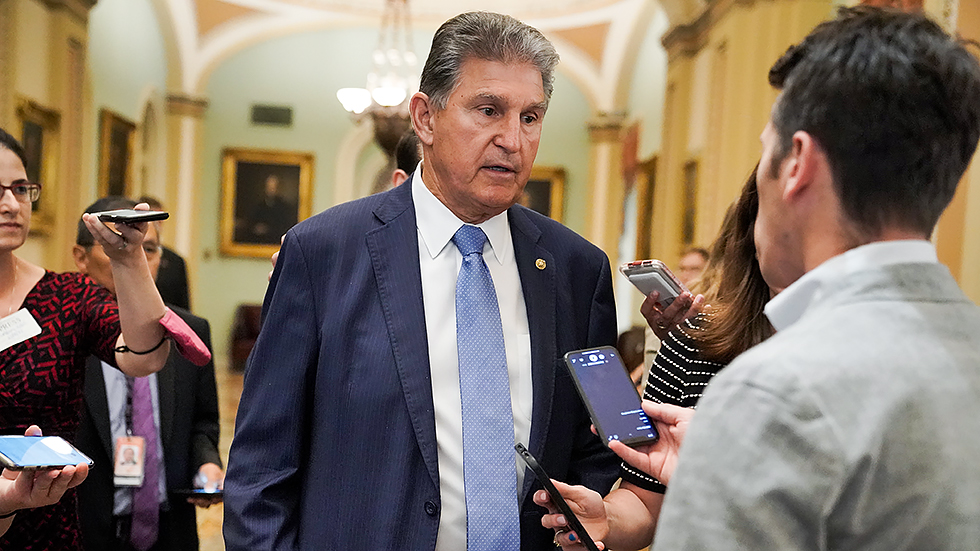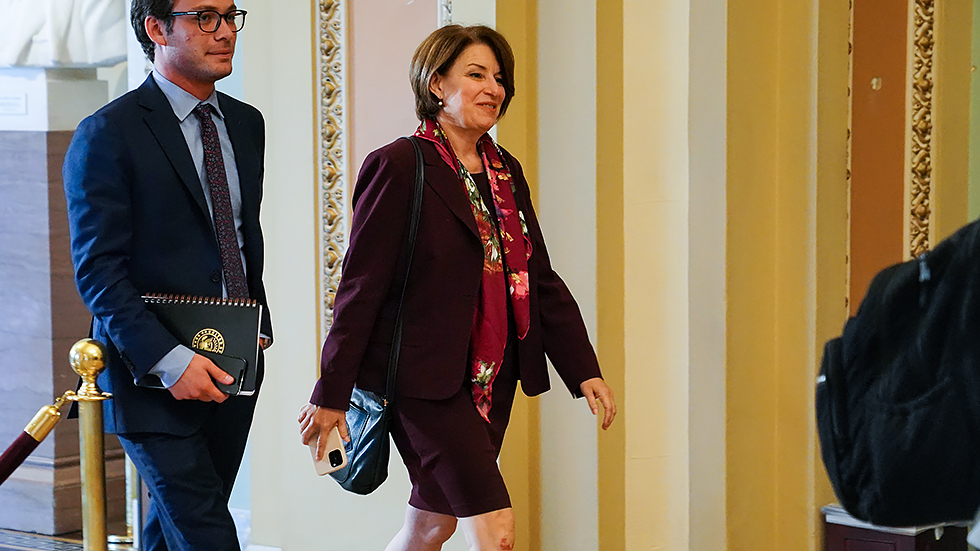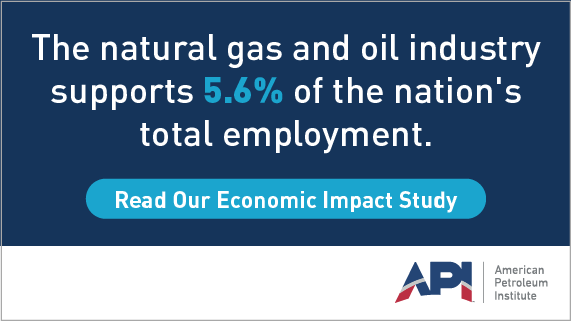Overnight Energy & Environment — Presented by the American Petroleum Institute — A warning shot on Biden’s $3.5T plan
Welcome to Thursday’s Overnight Energy & Environment, your source for the latest news focused on energy, the environment and beyond. Subscribe here: digital-staging.thehill.com/newsletter-signup.
Today we’re looking at Sen. Joe Manchin’s (D-W.Va.) call for a “pause” on the $3.5 trillion reconciliation bill, the Energy Department’s decision to use the Strategic Petroleum Reserve and FEMA changing a policy that made it harder to get disaster aid — especially for Black families.
For The Hill, we’re Rachel Frazin and Zack Budryk. Write to us with tips: rfrazin@digital-staging.thehill.com and zbudryk@digital-staging.thehill.com. Follow us on Twitter: @RachelFrazin and @BudrykZack.
Let’s jump in.
Manchin calls for ‘pause’ on reconciliation bill

Sen. Joe Manchin (D-W.Va.) said Democrats should hit “pause” on President Biden’s $3.5 trillion spending package, sending a significant warning shot at his party’s top legislative priority.
Manchin, during remarks this week at a West Virginia Chamber of Commerce event, pointed to concerns about “runaway inflation,” the delta variant of the coronavirus and a botched withdrawal in Afghanistan to float slowing down what is the centerpiece of Biden’s economic agenda.
More Manchin: “If the country is facing what we’re facing now. … I would ask my colleagues and all of the Senate to hit the pause button on the $3.5 [trillion],” Manchin said at the event on Wednesday. “Let’s sit back. Let’s see what happens. We have so much on our plate. We really have an awful lot. I think that would be the prudent, wise thing to do.”
“I know they’re going to go nuts right now … because what I said is going to all my caucus in Washington,” he added, referring to his Democratic colleagues. “But I’m thinking of it from the standpoint of where we are as a nation today.”
So what does this mean for the climate? Manchin’s remarks come as Democrats are negotiating and drafting the $3.5 trillion bill, which is expected to include major climate measures including a clean electricity payment program, clean energy tax incentives, a methane polluter fee and other climate policies.
If he sticks by his push for a go-slow approach it could mark a significant stumbling block to Democratic leadership’s timeline for advancing the Democratic-only bill.
Manchin, speaking at the Chamber event, argued that there wasn’t a reason to rush the spending plan, saying that “it’s not anything we need immediately.”
“Hit the pause button as Americans. Hit the pause button,” Manchin said.
Manchin doubled down on his remarks in a Wall Street Journal op-ed on Thursday, warning he can’t support a plan with a $3.5 trillion price tag.
Read more about Manchin’s hesitance here.
A MESSAGE FROM API
The American Petroleum Institute released a new analysis of the natural gas and oil industry’s impact on the U.S. economy. Learn how the industry is powering each state’s economy here.
US taps into reserve oil supply after Ida

Energy Secretary Jennifer Granholm is releasing 1.5 million barrels of crude oil from the Strategic Petroleum Reserve in an “exchange” with ExxonMobil Baton Rouge in order to alleviate issues following Hurricane Ida.
A Thursday statement from the Energy Department said that the purpose of the exchange was to “alleviate any logistical issues of moving crude oil within areas affected by Hurricane Ida to ensure the region has access to fuel as quickly as possible as they continue their recovery.”
The department said that the exchange was being provided to meet a need at the ExxonMobil Baton Rouge refinery.
Since the exchange is not a sale, the company will be expected to return the oil, in addition to premium barrels, to the reserve within a few months.
A large share of oil and gas production in the Gulf of Mexico went out because of the storm.
The exchange comes after President Biden said earlier on Thursday that he would direct Granholm to use “all of the tools at her disposal including using the Strategic Petroleum Reserve to keep gas flowing to the pumps.”
Read more about the decision here.
FED UP
Environmentalists are pressing President Biden to factor in the Federal Reserve’s record on climate change under Jerome Powell when he decides whether to renominate the central bank’s chairman for a second term.
After a summer of brutal heat domes, forest fires, and torrential storms capped off by Hurricane Ida, progressive lawmakers and activists are urging Biden to wage an offensive on climate change through the Fed.
“The status quo does not work. The status quo is what has led us to this moment. We have to take a different road if we want to save ourselves,” said Tracey Lewis, a policy analyst with environmental activist group 350.org, which has called for Powell’s replacement.
So what’s the issue? Powell has ruled out imposing climate-related bank stress tests similar to those in development in the U.K. and Europe. He has also refused to use the Fed’s immense power to steer funding away from fossil fuels and toward renewable energy, which many climate hawks consider essential to the fight against climate change.
“We are not climate policymakers here who can decide the way climate change will be addressed by the United States. We’re a regulatory agency that regulates a part of the economy,” Powell, a Republican, told lawmakers during a February hearing, one year out from when his term expires.
Opponents say what? With time now a key factor in the fight against climate change, environmental advocates are jumping into the debate over Powell’s future and insisting Biden must nominate someone willing to turn the Fed against the fossil fuel industry, instead of giving Powell another four years at the helm.
And a group of progressive Democratic lawmakers — including Rep. Alexandria Ocasio-Cortez (N.Y.) — made an explicit case to ditch the Fed chief in a Monday statement.
“We urge President Biden to re-imagine a Federal Reserve focused on eliminating climate risk and advancing racial and economic justice,” the lawmakers wrote, imploring the president to “use this opportunity to appoint a new Federal Reserve Chair.”
Read more about the pressure over Powell here.
FEMA changes policy that blocked disaster aid for many Black families

The Department of Homeland Security on Thursday announced it will amend a department policy that disproportionately withheld disaster aid from rural Black communities.
Under the previous policy, the Federal Emergency Management Agency (FEMA) required applicants for aid to produce specific documents such as deeds to prove their ownership of affected properties. The new policy will expand the allowable documentation to include vehicle registrations, legal documents and signed statements from a benefit provider, social service organization or mobile home park owner.
The disparity: The more restrictive requirements have long been a stumbling block, particularly for Black families in the rural South, who are less likely to have such records for inherited properties.
A July analysis by The Washington Post found the agency denied assistance over “title issues” in majority-Black counties about twice as often as the national rate. The analysis also found increased issues in rural Southern communities, such as one majority-Black community in Alabama where more than a third of tornado victims were denied over verification issues.
“These new changes reduce the barriers to entry for our Individual Assistance program and will help us to provide more equitable disaster support to all survivors, specifically for underserved populations. Heading into the peak of hurricane season with 12 named Atlantic storms to date, and as wildfires strengthen out west, FEMA continues to put equity at the forefront of how we support survivors before, during, and after disasters,” FEMA Administrator Deanne Criswell said in a statement Thursday.
Read more about the policy change here.
DISPARATE IMPACTS
A new report from the Environmental Protection Agency (EPA) says Black Americans are most likely to live in areas that are projected to be hardest hit by increased deaths due to climate-driven extreme temperatures and air pollution.
The report found that in a scenario where the world reaches 2 degrees Celsius of warming compared to pre-industrial levels, Black individuals are 40 percent more likely to live in areas with the highest projected increases in premature deaths because of climate-driven temperature extremes.
They are also 41 percent more likely to live in areas with the highest projected death increase from climate-caused impacts related to a pollutant known as fine particulate matter, which can consist of dust, dirt, soot and smoke.
Read more about the report here.
MAILBAG

Sen. Amy Klobuchar (D-Minn.) called on Democratic congressional leaders to ensure the budget reconciliation process incorporates support for biofuels as alternatives to fossil fuels.
In a letter Thursday, Klobuchar led nine Midwestern senators and representatives in calling for several bipartisan biofuel-related proposals to be included in the Democratic-only reconciliation bill.
These include the Biofuel Infrastructure and Agricultural Product Market Expansion Act, which would expand ethanol fuel pump infrastructure; the Low Carbon Biofuel Credit Act, which would create tax incentives for ethanol blends of 15 percent or more; and the Clean Fuels Vehicle Act, which would offer tax credits for the manufacture of vehicles that can use higher ethanol blends.
The letter also calls for a long-term extension of the expired Second Generation Biofuel Producer Tax Credit of $1.01 per gallon.
In addition to Klobuchar, the letter is signed by Sens. Tammy Duckworth (D-Ill.), Richard Durbin (D-Ill.) and Tina Smith (D-Minn.) and Reps. Cindy Axne (D-Iowa), Cheri Bustos (D-Ill.), Angie Craig (D-Minn.) and Mark Pocan (D-Wis.).
PERSONNEL MOVES
- Today the White House announced that it would nominate Brad Crabtree to lead the Energy Department’s office of fossil energy and carbon management
- On Wednesday, the White House Office of Science and Technology Policy announced that Philip Duffy would become Climate Science Advisor to its Climate and Environment Division
A MESSAGE FROM API
The American Petroleum Institute released a new analysis of the natural gas and oil industry’s impact on the U.S. economy. Learn how the industry is powering each state’s economy here.
WHAT WE’RE READING
- Lack of Power Hinders Assessment of Toxic Pollution Caused by Ida, The New York Times reports
- Baton Rouge, New Orleans ports reopen after Ida, key oil hubs remain shut, Reuters reports
- The Amazon rainforest’s most dogged defenders are in peril, Vox reports
- Russia, India ready to expand bilateral energy cooperation, S&P Global reports
ICYMI
- Photos show appearance of black slick near Gulf oil rig
- Ocasio-Cortez: Flooding deaths highlight how ‘climate crisis is an inequality crisis’
- Biden on administration’s response to Hurricane Ida: ‘We’re all in this together’
- Schumer calls for action on climate after Ida flooding
- At least 22 killed as Hurricane Ida remnants travel up East Coast
- 1 in 3 countries have no outdoor air quality requirements: UN report
- First-ever flash flood emergency warning issued for parts of New York City
And finally…some animal news
That’s it for today, thanks for reading. Check out The Hill’s energy & environment page for the latest news and coverage. We’ll see you Friday.{mosads}
Copyright 2024 Nexstar Media Inc. All rights reserved. This material may not be published, broadcast, rewritten, or redistributed..









